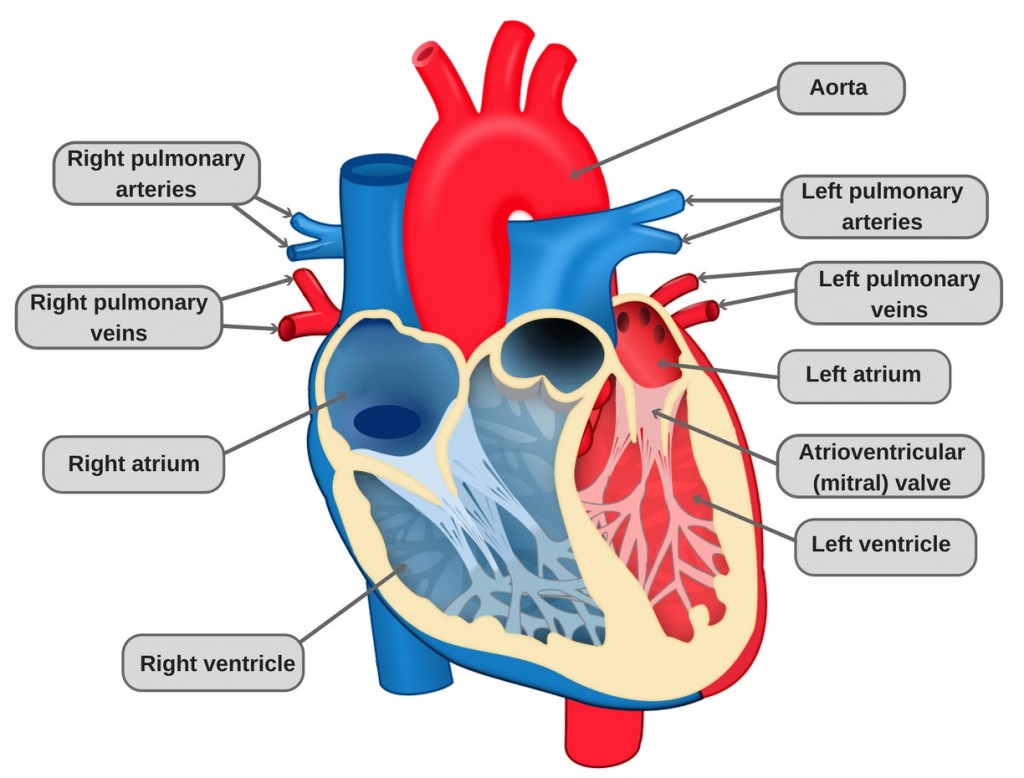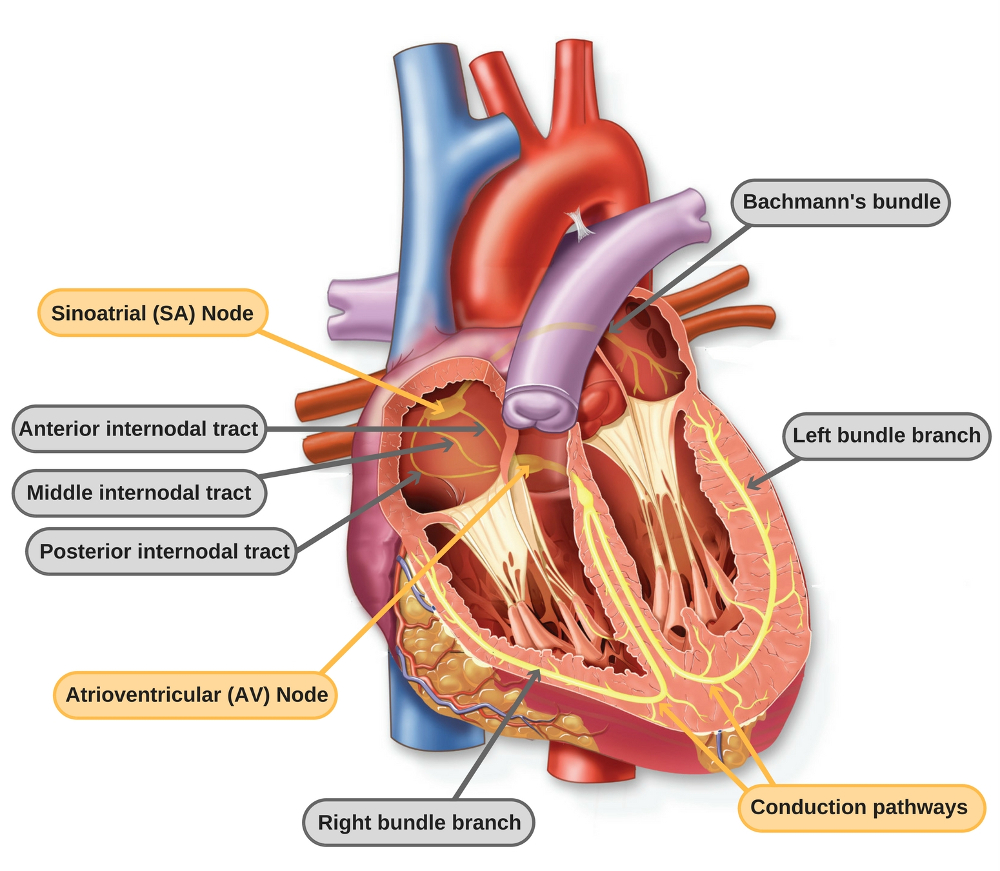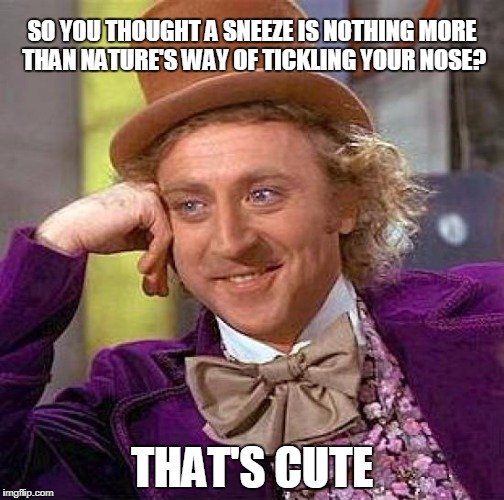Table of Contents (click to expand)
No, your heart does not stop when you sneeze! However, it feels like the heart has stopped because immediately prior to the sneeze, a great deal of pressure builds up in the chest, and that short-lived spike affects the rhythm of your heartbeat. That being said, it certainly doesn’t keep the heart from beating.
No, your heart does not stop when you sneeze! However, it feels like the heart has stopped because immediately prior to the sneeze, a great deal of pressure builds up in the chest, and that short-lived spike affects the rhythm of your heartbeat. That being said, it certainly doesn’t keep the heart from beating.
Anatomy Of The Heartbeat
You might recall the following picture of the human heart from your high school biology classes:

As you can see in the image above, the heart is divided into four chambers: left atrium, right atrium, left ventricle and right ventricle. There’s a valve that connects each atrium to its corresponding ventricle. There are also two more valves, the pulmonic valve and the aortic valve, which complete the entire set. Together, all these valves act like gates, which allow about 2,000 gallons of blood to flow from one direction to another with each heartbeat every day.
Now, let’s talk about how the heart actually beats. A heartbeat is the result of a small electric current produced by the cardiac conduction system, which, in simple words, can be considered the electrical system that runs the heart.
A heartbeat is stimulated by an electric impulse that travels down a certain pathway through the heart. The impulse starts in the sinoatrial node or SA node (also known as the heart’s natural pacemaker), which is a small bunch of specialized cells found in the right atrium. This impulse spreads through the walls of the atria and makes them contract, which consequently pushes blood into the ventricles.

Before the electrical impulse reaches the ventricles, it passes through the atrioventricular node (or AV node). This is actually a cluster of cells between the atria and ventricles that acts like a gate and slows down the incoming electrical signal before it gains entry to the ventricles.
At this juncture, the network of Purkinje fibers steps into the scene. The impulse reaches the muscular walls of the ventricles through this pathway of fibers and causes the ventricles to contract. Consequently, blood flows out of the heart to various organs of the body.
This is where the entire process culminates, but all of that only makes up a single heartbeat.
Also Read: Why Does It Feel So Amazing To Sneeze?
How Does Sneezing Work?
The purpose of sneezing, or sternutation if you will, is to get rid of mucus that contains irritants (usually foreign particles that enter through the nose) from the nasal cavity.

A sneeze starts its journey when a tickling sensation in the nerve endings alerts the brain that it must expel some irritating, foreign particle from the nasal cavity. In response, you inhale deeply, tighten your chest muscles and close your eyes to let breath and mucus (containing the irritant) come rushing out of your mouth and nose at staggering speeds of up to 100 mph! Basically, a sneeze is a way to get rid of unwanted stuff from inside your nasal cavity.

Also Read: Is It Possible To Prevent A Sneeze By Placing Your Hands Under Nose?
How Is Sneezing Related To Heartbeats?
Although it’s true that your heartbeat is affected by a sneeze, it doesn’t actually stop the heart. You see, when you sneeze, the pressure in your chest undergoes drastic variations very quickly, which temporarily changes the flow of your blood.
More specifically, the act of sneezing suddenly causes a spike in the intrathoracic pressure in your body, thereby decreasing the flow of blood back to the heart. The heart responds to this momentary change by quickly adjusting its regular beat rhythm.
Therefore, while the rhythm of heartbeats may change momentarily during a sneeze, the electrical activity inside the heart continues unaffected. In a nutshell, this means that the heart DOES NOT stop functioning when you sneeze.
How well do you understand the article above!

References (click to expand)
- The simple sneeze isn’t so simple – UF Health Podcasts - podcasts.ufhealth.org
- Why Does Your Heart Beat? | The Franklin Institute - www.fi.edu
- In the cloud: How coughs and sneezes float farther than you .... news.mit.edu
- Does your heart really stop every time you sneeze? - UCSB Science Line. The University of California, Santa Barbara
